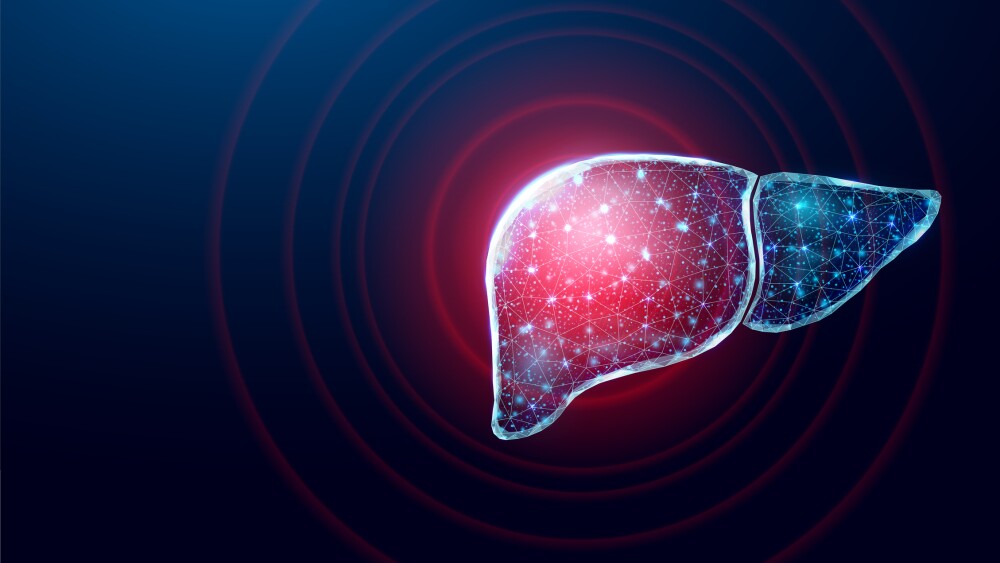Akebia Therapeutics, Inc. (Nasdaq: AKBA), a biopharmaceutical company focused on the development and commercialization of therapeutics for people living with kidney disease, today announced that nine abstracts, including several associated with vadadustat and Auryxia® (ferric citrate), have been accepted for presentation at the upcoming American Society of Nephrology (ASN) Kidney Week 2019 Annual Meeting.
Four posters and presentations are associated with vadadustat, Akebia’s investigational oral hypoxia-inducible factor prolyl hydroxylase inhibitor (HIF-PHI) in global Phase 3 development for the treatment of anemia due to chronic kidney disease (CKD) in dialysis dependent (DD)-CKD patients and non-dialysis dependent (NDD)-CKD patients. All abstracts selected for presentation are summarized below and are available from ASN on the Kidney Week abstracts archive: https://www.asn-online.org/education/kidneyweek/archives/.
Vadadustat Oral and Poster Presentations:
- “Effect of Moderate Hepatic Impairment on Pharmacokinetics of Vadadustat, an Oral Hypoxia-Inducible Factor Prolyl Hydroxylase Inhibitor (HIF-PHI)” (Poster TH-PO369) to be presented on November 7 from 10:00 AM to 12:00 PM ET.
- “Randomized, Double-Blinded, Active-Controlled (Darbepoetin Alfa), Phase 3 Study of Vadadustat in Chronic Kidney Disease Patients with Anemia on Hemodialysis in Japan” (Oral TH-OR024) to be presented by Mitsubishi Tanabe Pharma Corporation (MTPC), Akebia’s development and commercialization collaboration partner in Japan for vadadustat on November 7 in Room #150 from 4:30 PM to 6:30 PM ET.
- “Randomized, Open-Label, Active-Controlled (Darbepoetin Alfa), Phase 3 Study of Vadadustat for Treating Anemia in Non-Dialysis-Dependent CKD Patients in Japan” (Poster SA-PO229) to be presented by MTPC on November 9 from 10:00 AM to 12:00 PM ET.
- “Preclinical characterization of vadadustat (AKB-6548), an oral small molecule hypoxia inducible factor prolyl-4-hydroxylase inhibitor, for the potential treatment of renal anemia” (Oral SA-OR037) to be presented on November 9 in Room #150 from 4:30 PM to 6:30 PM ET.
Ferric Citrate and Additional Oral and Poster Presentations:
- “Effect of ferric citrate vs. ferrous sulfate on iron, hemoglobin and mineral metabolism in CKD” (Oral TH-OR029),presented by Principal Investigator Orlando M. Gutiérrez, MD, MMSc, on November 7 in Room #150 from 4:30 PM to 6:30 PM ET.
- “Effect of Ferric Citrate on ESA use in ESRD patients with elevated Ferritin” (Oral TH-OR028) presented by Principal Investigator Sreedhar Mandayam, MD, MPH, MBA, on November 7 in Room #150 from 4:30 PM to 6:30 PM ET.
- “Prevalence, correlates and outcomes of absolute and functional iron deficiency anemia in non-dialysis dependent chronic kidney disease” (Poster SA-PO239) presented by Principal Investigator Sankar D. Navaneethan MD, MS, MPH on November 9 from 10:00 AM to 12:00 PM ET.
- “Ferric Citrate Hydrate on Anemia Management in Hyperphosphatemia Hemodialysis Patients with or without Diabetes: ASTRIO Study, Supplementary Analysis” (Poster SA-PO245) presented by Japan Tobacco Inc./Torii Pharmaceutical Co., Ltd. on November 9 from 10:00 AM to 12:00 PM ET.
- “Enteral ferric citrate absorption is dependent on ferroportin” (Oral SA-OR035) presented by Principal Investigator Tomas Ganz, MD, PhD, on November 9 in Room #150 from 4:30 PM to 6:30 PM ET.
About Akebia Therapeutics
Akebia Therapeutics, Inc. is a fully integrated biopharmaceutical company focused on the development and commercialization of therapeutics for people living with kidney disease. The Company was founded in 2007 and is headquartered in Cambridge, Massachusetts. For more information, please visit our website at www.akebia.com, which does not form a part of this release.
About Vadadustat
Vadadustat is an oral hypoxia-inducible factor prolyl hydroxylase (HIF-PH) inhibitor currently in global Phase 3 development for the treatment of anemia due to CKD. Vadadustat is designed to mimic the physiologic effect of altitude on oxygen availability. At higher altitudes, the body responds to lower oxygen availability with stabilization of hypoxia-inducible factor, which can lead to increased red blood cell production and improved oxygen delivery to tissues. Vadadustat is an investigational therapy and is not approved by the U.S. Food and Drug Administration (FDA) or any regulatory authority.
About Auryxia® (ferric citrate) Tablets
Auryxia (ferric citrate) was approved by the FDA on September 5, 2014 for the control of serum phosphorus levels in adult patients with CKD on dialysis and approved by the FDA on November 6, 2017 for the treatment of iron deficiency anemia in adult patients with CKD not on dialysis. For more information about Auryxia and the U.S. full prescribing information, please visit www.auryxia.com.
IMPORTANT U.S. SAFETY INFORMATION FOR AURYXIA® (ferric citrate) CONTRAINDICATION
AURYXIA® (ferric citrate) is contraindicated in patients with iron overload syndromes, e.g., hemochromatosis.
WARNINGS AND PRECAUTIONS
- Iron Overload: Increases in serum ferritin and transferrin saturation (TSAT) were observed in clinical trials with AURYXIA in patients with chronic kidney disease (CKD) on dialysis treated for hyperphosphatemia, which may lead to excessive elevations in iron stores. Assess iron parameters prior to initiating AURYXIA and monitor while on therapy. Patients receiving concomitant intravenous (IV) iron may require a reduction in dose or discontinuation of IV iron therapy.
- Risk of Overdosage in Children Due to Accidental Ingestion: Accidental ingestion and resulting overdose of iron-containing products is a leading cause of fatal poisoning in children under 6 years of age. Advise patients of the risks to children and to keep AURYXIA out of the reach of children.
ADVERSE REACTIONS
Most common adverse reactions with AURYXIA were:
- Hyperphosphatemia in CKD on Dialysis: Diarrhea (21%), discolored feces (19%), nausea (11%), constipation (8%), vomiting (7%) and cough (6%).
- Iron Deficiency Anemia in CKD Not on Dialysis: Discolored feces (22%), diarrhea (21%), constipation (18%), nausea (10%), abdominal pain (5%) and hyperkalemia (5%).
SPECIFIC POPULATIONS
- Pregnancy and Lactation: There are no available data on AURYXIA use in pregnant women to inform a drug-associated risk of major birth defects and miscarriage. However, an overdose of iron in pregnant women may carry a risk for spontaneous abortion, gestational diabetes and fetal malformation. Data from rat studies have shown the transfer of iron into milk, hence, there is a possibility of infant exposure when AURYXIA is administered to a nursing woman.
To report suspected adverse reactions, contact Akebia Therapeutics at 1-844-445-3799.
Please see full Prescribing Information.
View source version on businesswire.com: https://www.businesswire.com/news/home/20191024005269/en/
Source: Akebia Therapeutics, Inc.




